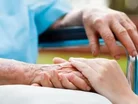Saying Sorry: The Right Way for Doctors to Apologize to Avoid Liability

When medical care doesn’t go as planned, something as simple as an apology can make a world of a difference.
Manitoba, Canada has had an Apology Act since 2007, allowing health care workers and professionals to make apologies without it being an admission of legal liability, but now, the province is taking the initiative to teach hesitant health care workers how to apologize – the right way.
“Make a genuine apology for the incident that shows remorse, humility and compassion” reads an information sheet from the Manitoba Institute for Patient Safety (MIPS) that is to be posted in doctors’ offices and hospitals all around the province and distributed to the 25,000 members of the group.
“Apology is the right and humane thing to do when patients are harmed,” said Laurie Thompson, MIPS’ executive director during a press conference earlier this week.
While it will likely take time and education before all members feel comfortable in apologizing, Thompson believes it can be “therapeutic to the family and health care professional.”
While the Apology Act states that “an apology made by or on behalf of a person in connection with a matter … does not constitute an express or implied admission of fault or liability by the person in connection with the matter,” doctors and health care professionals are still hesitant and have largely stuck to the “traditional customs of secrecy and denial,” according to the Canadian Medical Association Journal.
“Our practicing members weren’t aware of the Apology Act, so we figured it was time to put the information out there that it’s okay to say you’re sorry when something unexpected goes wrong,” said Adam Chrobak, chairman of the Manitoba Alliance of Health Regulatory Colleges.
The following eight tips are outlined in the information sheet to teach health care professionals how to apologize.
1. Acknowledge that something (e.g. a critical incident) has happened.
2. Explain the facts of what has happened without accepting or assigning blame.
3. Explain how the incident will affect the health of the patient.
4. Make a genuine apology for the incident that shows remorse, humility and compassion. Consider using words like “I feel badly for what happened.” “We are sorry.” “We know that what happened has caused you unnecessary pain/anguish/health complications…”
5. Explain what can happen to help remedy the situation.
6. Document the conversation with the patient and family.
7. If possible, explain what will change so this same situation is less likely to happen to other patients in the future. People usually want to know that some good may come about as a result of the situation that has caused them emotional or physical pain.
8. Once the event has been reviewed, follow-up with the patient to see how they are doing and advise them on what progress has taken place to reduce the likelihood that it does not happen again to others.



